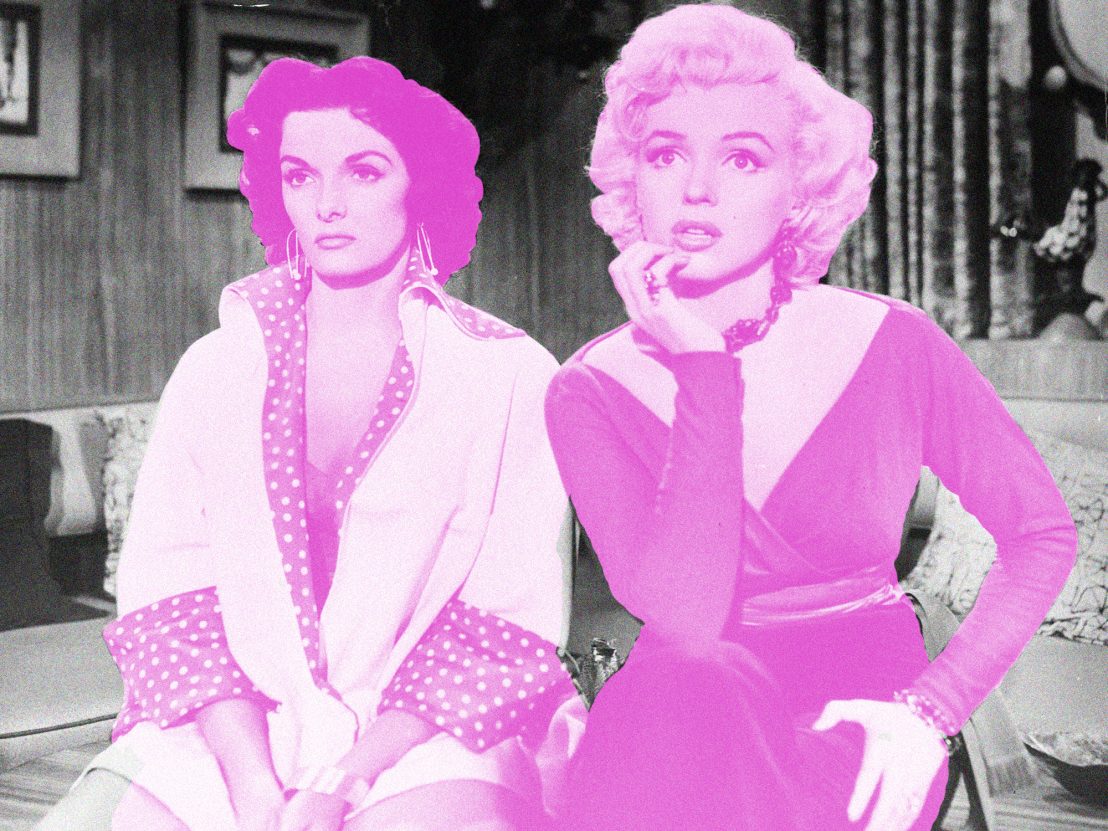
It was in the pages of the then-young Cahiers Du Cinéma magazine that a tight-knit group of French movie dorks (Truffaut, Rivette, Godard et al) first proffered Auteur Theory, the notion that a director’s authorial stamp was surely the most vital metric in determining a film’s value. Amongst their idols, few were as imposing as American director Howard Hawks. The grand old man himself was, by contrast, ruggedly anti-intellectual. “I’m a storyteller”, he would assert, “I’m not an artist.” But Hawks’ auteur credibility has always rested on his narrative sensibilities – a Hawksian close-up would be hard to define but a Hawksian situation is unmistakable. A situation like, say, the one in Only Angels Have Wings: a group of daring flyboys in a South American port town. The guys work hard, they play hard. It’s a boys’ club, and into it walks Jean Arthur as wise-cracking piano player Bonnie – the archetypal Hawksian Woman.
Film critic Naomi Wise, who coined the term Hawksian Woman in 1971, argued that in Hawks’ cinema “good girl and bad girl are fused into a single, heroic heroine”. This assertion is certainly true of Bonnie, whose worldliness and irreverence might easily have marked her as a ‘fallen woman’ in another film of the 1930s. Upon her arrival in fog-shrouded Barranca, she isn’t at all scandalised by the sexy dancing she happens upon in a down-and-dirty saloon. Instead, she sings along with the band and shoots the dancers a cheeky A-OK hand gesture. Despite the customary mid-Atlantic accent, she’s a salt-of-the-earth girl from Brooklyn.
It’s these qualities that put Bonnie at ease with the group of hard-drinking, hard-flying pilots she falls in with (a Hawksian Woman is nothing if not ‘one of the boys’). But, of course, there’s one boy in particular she’s got her eye on: Geoff, the leader of the squad, played by an atypically taciturn Cary Grant. Geoff embodies the tight-lipped professionalism that one sees time and again in Hawks’ leading men, and if Bonnie is to win his heart, she must toughen up even further. Early in the film, she is aghast at the pilots’ nonchalance at the sudden death of Joe, a fellow flyer (“who’s Joe?” they all say). By the end, she has accepted that these men are simply compelled to live dangerously, and that Geoff is worth the risk.
But what does Bonnie get in return for her newfound hardness? Geoff and his compatriots are continually shown to feel as deeply as she does, but their repression of fear and sadness grants them access to the skies, and with it a state of ineffable grace. Bonnie’s father was a trapeze artist and, as a child, she had stared up at him with a mixture of awe and terror. Only Angels Have Wings ends with Bonnie staring up Geoff, the new patriarch in her life, as he flies overhead. For all her swagger and moxie, she’s still that same little girl.
It’s endings like that which usually put the kibosh on reading Hawks’ heroines as feminist figures, tempting as those readings may be. “It’s been said they’re like the new women’s lib”, Hawks told a German documentary crew in 1977, “but they don’t talk as much as the people today do.” Despite this characterisation, Hawks’ leading ladies are usually rather verbose, articulate, and witty – none more so than Rosalind Russell as ace reporter Hildy in His Girl Friday. Famed for its rapid-fire repartee, this screwball classic follows Hildy as she tries to leave the newspaper business behind for a “respectable, halfway normal life”, only to be roped back in by her ex-boss (and ex-husband) Walter (Cary Grant again) over the course of an especially madcap news day.
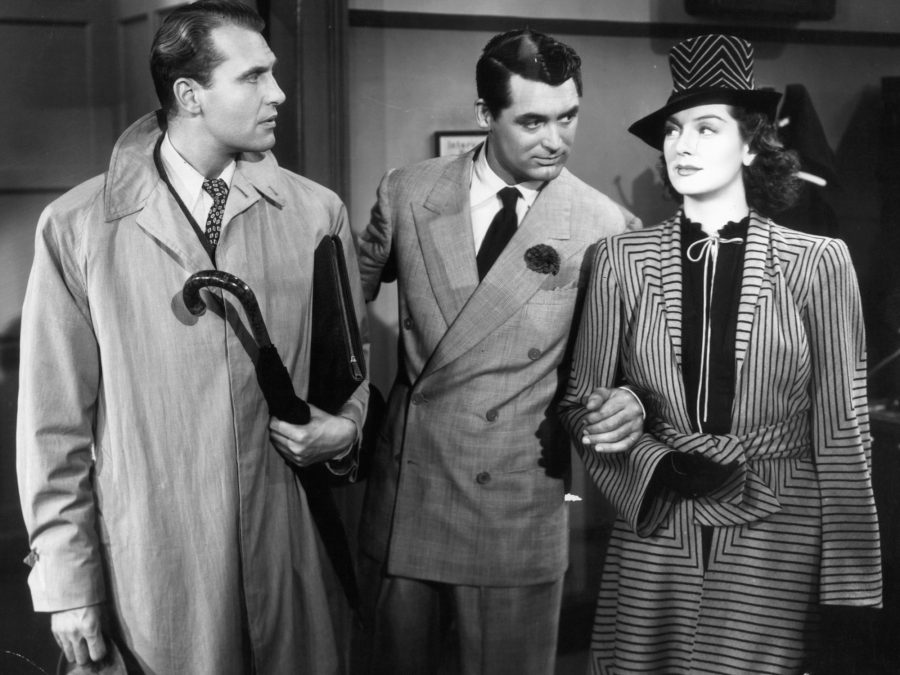
His Girl Friday is frustrating when viewed from a feminist perspective in that it comes tantalisingly close to being a feminist work. Russell cuts a thoroughly modern silhouette as the intrepid “newspaperman” (Walter’s words) and one gets the sense that Hawks sincerely believe that she’s a tough-nut who belongs in a tough business – she ought to be there. He does not, however, trust her to make her own decisions.
There is a kind of paradox at the core of His Girl Friday, wherein the eminently capable Hildy is spared a life of domestic drudgery, but only through submission to a man’s will and better judgement. She continually asserts and re-asserts that she wants to quit, to settle down with her dull new fiancée, Bruce (played softly and sweetly by Ralph Bellamy), but Walter wants her back in his newsroom (not to mention his marital bed). Grant plays Walter so irresistibly – and his chemistry with Russell is so sparky – that one hardly notices quite how cruel his manipulation of Hildy really is. Moreover, we want to see Hildy scuffle and snoop her way to a big story – if we squint, it almost looks like emancipation.
When trying to define his archetypal leading lady, Hawks noted that “they usually don’t like other women.” While it’s true that there is an overall scarcity of female camaraderie amongst Hawksian Women, two notable outliers would be showgirls Lorelei Lee and Dorothy Shaw – played by Marylin Monroe and Jane Russell respectively – in Gentlemen Prefer Blondes. Though they’re both saddled with perfunctory love interests, the most significant relationship each woman has is with the other – during the film’s double-wedding denouement, Hawks totally obscures the men either side of Lorelei and Dorothy by dollying in, making it look as though they were marrying one another.
They certainly bicker like a married couple, ardently defend one another like a married couple. They share a homosocial bond that Hawks consistently associates with professionalism – the trait he valued above all others – but typically reserves for his male characters. But what, precisely, are Lorelei and Dorothy professionals at? They’re professional women, of course, and Hawks admires them as such. They both excel in the field of femininity and, unlike Hildy, they excel on their own terms. Neither one is left on the ground looking up. Monroe and Russell are flying their own planes, so to speak. But womanhood is not a profession – or rather, it shouldn’t be.
Years after his stint at Cahiers, Jean-Luc Godard once opined that Howard Hawks was “incapable of seeing the difference between a man and a woman” – this supposedly egalitarian treatment of gender has been a cornerstone of Hawks’ enduring reputation. While it’s true he was head-and-shoulders above much of ‘Old Hollywood’, JLG’s audacious claim doesn’t bear much scrutiny.
Hawks clearly enjoyed the trappings of female strength but, in accordance with his time and place, rarely afforded his heroines the opportunity to wield it. “That’s the kind of girl I like”, Hawks bluntly put it – fetishism, not feminism. Whether it’s the superbly skittish Katherine Hepburn in Bringing Up Baby or the effortlessly cool Lauren Bacall in The Big Sleep, the Hawksian Woman can still feel aspirational. What she cannot do, unfortunately, is transcend the limits of her auteur’s imagination.
Razor Sharp: The Fabulous Women of Howard Hawks runs at the BFI Southbank throughout June 2023.
Published 12 Jun 2023
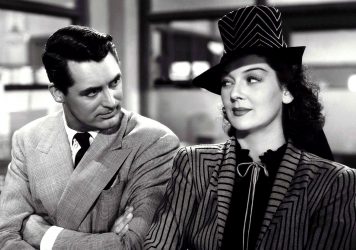
By Adam Scovell
Howard Hawks’ 1940 film remains one of Hollywood’s finest and most radical comedies.
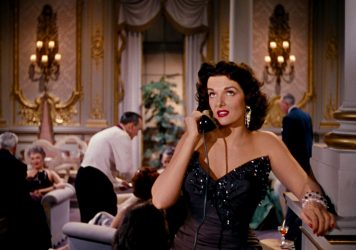
Her sharp-tongued turn in Howard Hawks’ 1953 comedy is the perfect foil for Marilyn Monroe’s bimbo act.
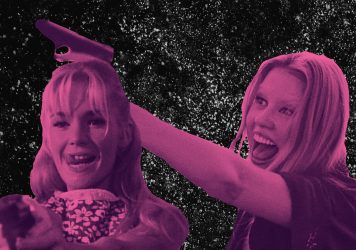
By Ryan Coleman
As Mia Goth brings us unhinged excellence via Pearl and Infinity Pool, it's possible to find a parallel in the story of former wild child Tuesday Weld.